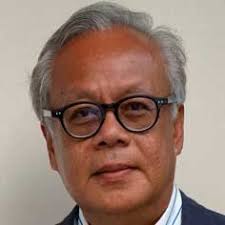Sabah should join Sarawak to fight Petronas

Joe Samad, Free Malaysia Today
It was reported on June 5 that Petronas had gone to court to seek a declaration that under the Petroleum Development Act 1974 (PDA), the national oil company had exclusive rights over oil and gas resources in Malaysia.
Petronas’ move is in response to Sarawak’s announcement on March 7 that it had assumed full control of oil and gas resources within its territorial boundaries.
The legal test initiated by Petronas is shaping up to become a battle royale between a corporate body and a founding state of Malaysia.
After the Cabinet meeting on June 6, Prime Minister Dr Mahathir Mohamad said the federal government would leave it to the court to decide on the dispute between Sarawak and Petronas, clearly washing his hands over what could be a tenacious battle between federal and state rights.
In reply, Sarawak Assistant Minister in the Chief Minister’s Department Sharifah Hasidah said the state government would exhaust all avenues available in the country’s laws to defend its rights over petroleum resources in the state.
A political analyst said Petronas would not have acted unless it had been sanctioned by higher authorities. Clause 3 (2) of the PDA states, “The corporation shall be subject to the control and direction of the prime minister who may from time to time issue such direction as he may deem fit.”
It is, therefore, plausible to assume that Petronas had the consent of the prime minister to pursue the matter in court.
It is interesting to note that at the time of the announcement there was, and still is, no minister in the federal cabinet from Sabah and Sarawak to argue or protect Sabah and Sarawak interests.
State assemblyman Jeffrey Kitingan warned that any court ruling favouring Petronas in the matter of petroleum resources ownership could signal “the end” of Malaysia.
“If the federal government insists on this, we will go back to the basis of the formation of Malaysia,” he said. Most East Malaysians share the same sentiment with Jeffrey as the oil resource is both a boon and bane of the two East Malaysian states. Sabah contributes more than 50% of the country’s oil production and gets only 5% oil royalties in return.
In 2017, Petronas contributed RM16 billion to the federal government’s coffers on the back of historical low crude oil prices. If we calculate Sabah’s oil production, it is fair to say that Sabah contributes a big chunk of the revenue derived from Petronas’ profits.
When it comes to oil and gas rights, Sabah and Sarawak are tied to the same umbilical cord of Malaysia Agreement 1963. Sabah Chief Minister Shafie Apdal has maintained that the state would work on its demand for 20% oil royalty from the federal government in line with his party’s GE14 manifesto.
An increase in oil royalties has been discussed or promised by past BN leaders and opposition parties in GE13 and GE14 campaigns and East Malaysians have yet to see any results.
Due to the frustration over a mere 5% paid in royalties for resources extracted from their territories, the Sabah and Sarawak governments have formed their own oil companies to get additional revenue from their oil resources.
Sarawak formed Petros while Sabah has consolidated its oil and gas activities under Sabah International Petroleum (SIP).
Sabah has made inroads in the upstream business since 2014 through M3nergy owned by Sabah Development Bank. M3energy launched Sabah’s first floating production storage offloading vessel in 2014. There were ambitious plans by the directors of the company to acquire more FPSO and become an international player.
According to its website, SIP has been active in Indonesia since 2007 and has a proven record as a production sharing contractor having operated onshore and offshore for 10 years. In 2014, SIP acquired a 20% equity interest in Octanex, a listed Australian oil and gas company which is expanding into Southeast Asian production activities, in addition to its existing portfolio of exploration and appraisal interests offshore Western Australia.
In December 2014, it was announced that two production sharing contracts (PSCs) in Sabah would be awarded to a consortium comprising SapuraKencana Energy Sabah Inc, M3nergy Bhd and Petronas Carigali Sdn Bhd. The Sabah government-owned M3nergy holds 25% share in the consortium.
These two PSCs, which involve the exploration, development and production of petroleum from the fields identified as SB331 and SB332, are described as the first in the country without foreign shareholding or a foreign company operating the fields.
On the downstream side, it seems that the Sabah government has taken 25% equity in SAMUR, the Petronas Ammonia and Urea plant in Sipitang. It also owns Sabah Energy Corporation, Asian Supply Base, and equity in the Bintulu LNG.
As such, many Sabahans have expressed the opinion that the Sabah government should also take a proactive stance and join Sarawak to protect the interest of both states under the Malaysia Agreement 1963.
It goes without saying that any unfavourable outcome from Petronas’ action will affect Sabah.
The Sabah Law Society has offered to form a special committee of legal practitioners to assist the state government and the state government should take up the offer to strengthen the legal grounds of its right to oil and gas resources within its boundary.

